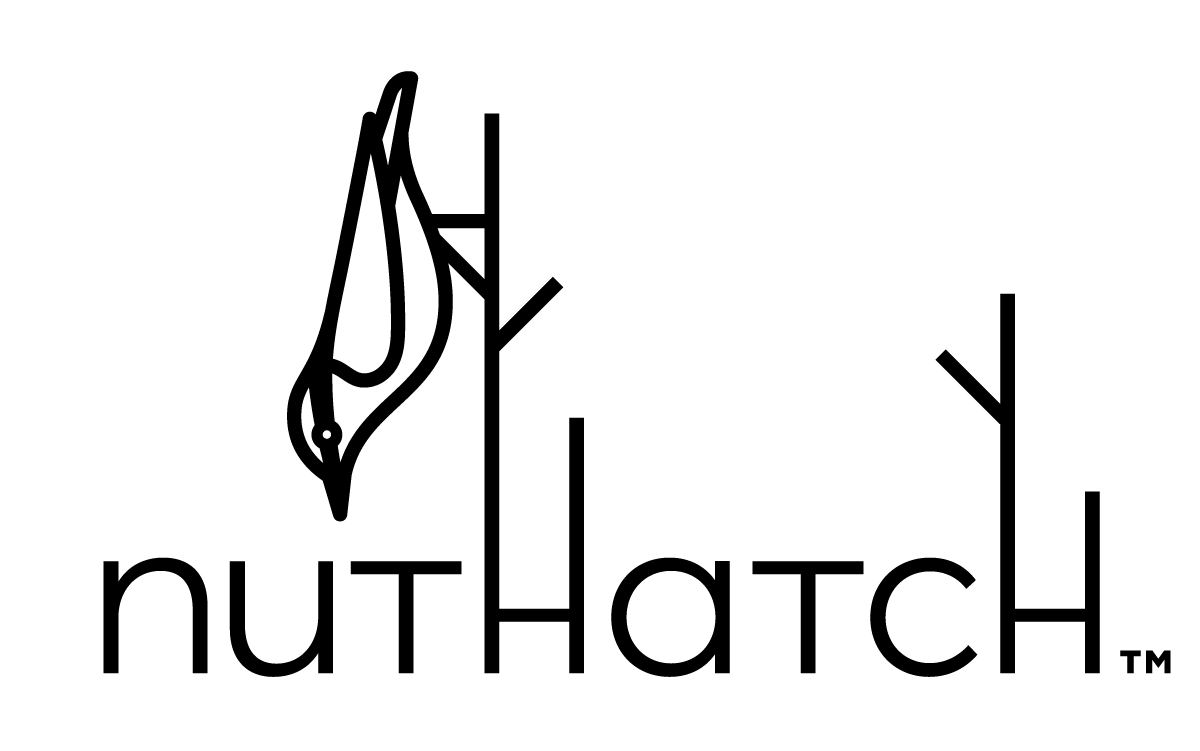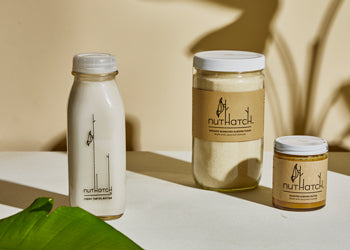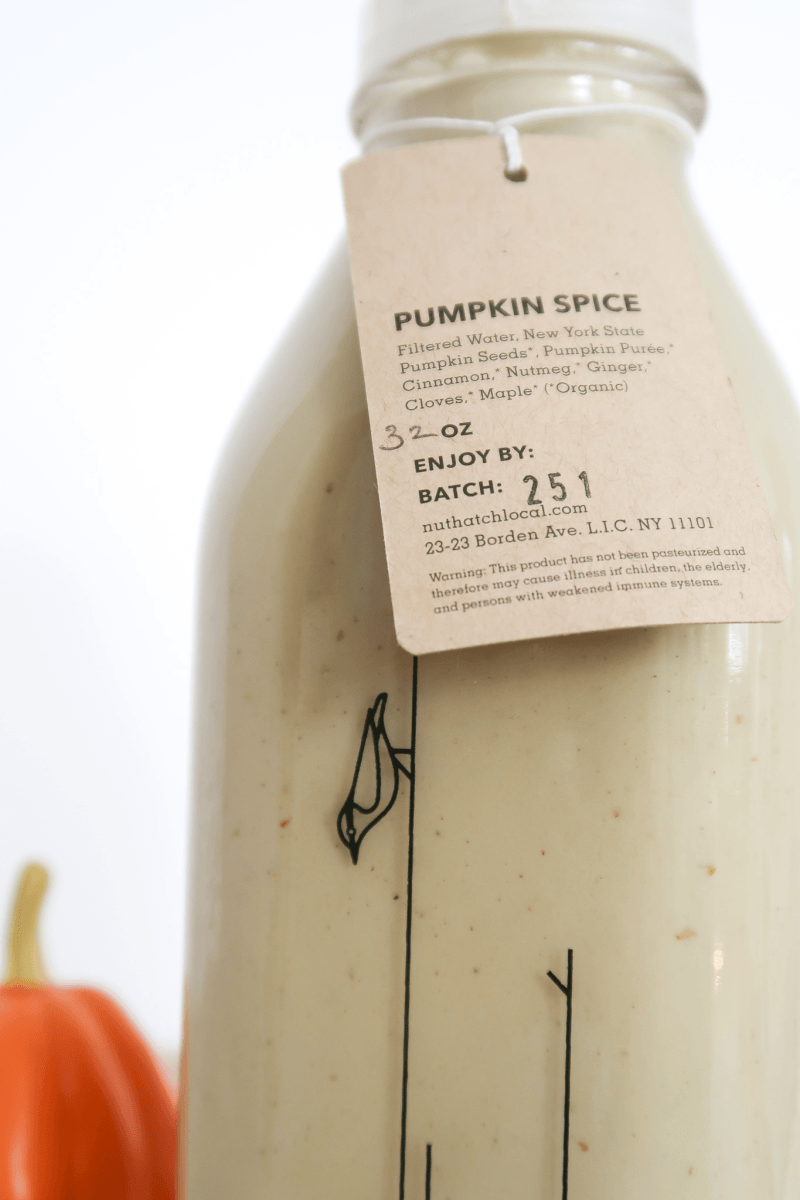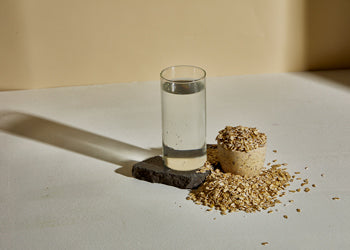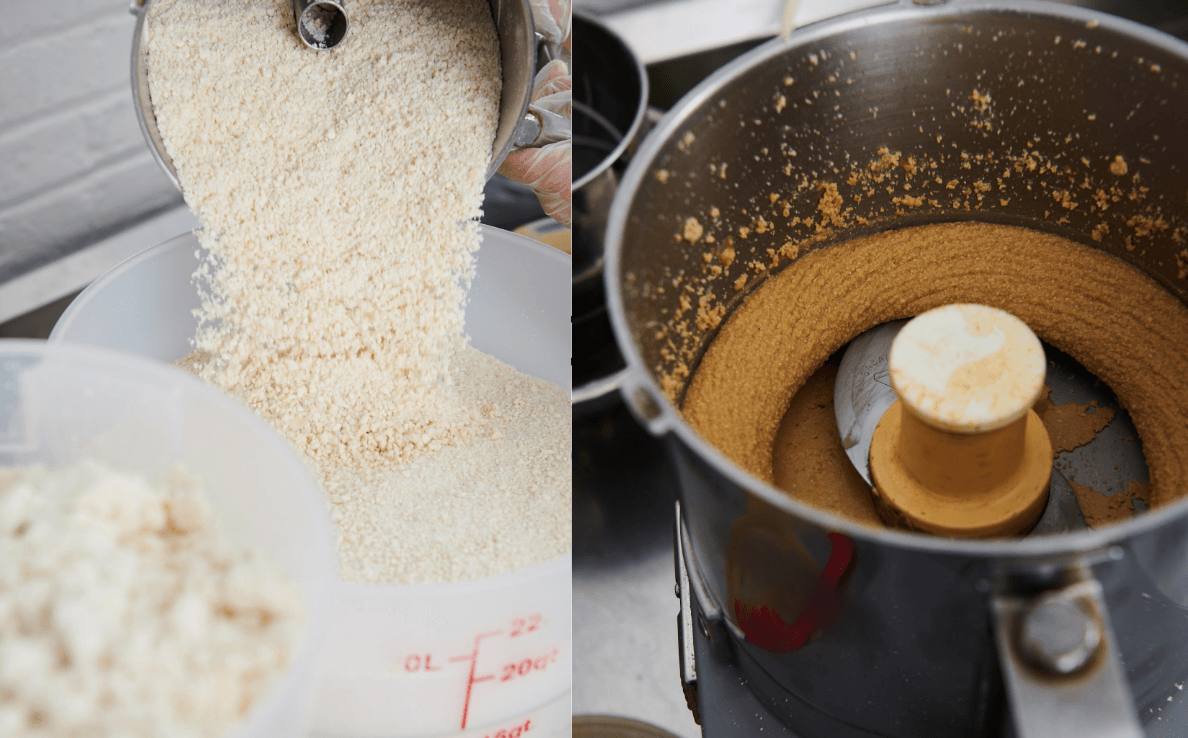
NotMilk was started by two sisters, Carolyn and Susan, with a dream to make the most delicious, healthiest, most sustainable plant-based milks out there. Our commitment to sustainability has been core to our business and we’ve certainly come a long way from our early days back in 2014!
Here's how nuts become milk, flour, and nut butter: the (not so) short story of NotMilk.
Have you ever tried making nut milk yourself at home? Some of you know the drill. Soak almonds in water overnight, strain and rinse, add them to a blender with fresh water, blend, and strain with cheesecloth. It’s not easy but it’s a labor of love!
But what about the waste? You know that stuff leftover in the cheesecloth that kind of feels like a paste? It’s called pulp or meal and what are you supposed to do with it? Compost it? Toss it? Find a cool recipe on IG for raw balls or gluten free crackers and get after it? You’re proud of your efforts to make the milk, but now you’ve got extra waste to deal with! Sigh. Being green is WORK! Maybe you just put the pulp in a container in the fridge with the intention of getting to it later...and then forgot all about it ‘til it was eh - growing? Now you’ve got a science project. Oh well. Next time...

Susan and I definitely went through all of the above. The processing time and labor were A LOT. Susan is a handsy genius who adores baking so we tried all sorts of recipes in the kitchen. She started whipping up these amazing treats but the process was very labor intensive. First make the milk, then dehydrate the meal for 12-18 hours, then sift it several times to get the flour, and finally get to baking. And if you’ve ever made vegan and gluten-free baked goods, you know how tricky it can be - but on the bright side once we turned the pulp into flour at least we didn’t have to worry about it spoiling!
And yes, truth be told, we had moments where we just gave up and tossed the pulp because we couldn’t process it fast enough. Our business was growing and we were making more and more milk, which meant we were creating more and more pulp. It was more than we could transform into baked goods while making milk, doing deliveries, promoting our business, posting on Instagram and also working full time day jobs. We were stretched too thin.
So, we dropped the baked goods, stuck with our commitment to sustainability and focused on processing the flour. Pounds and pounds of it. Just think of how much pulp you can generate making milk for your own home use and amplify that to an industrial scale; hundreds of bottles of milk a week! The volume was epic. But so was our vision!
And so it began. We bought commercial dehydrators which run non-stop, dehydrating the nut pulp so it can be milled into flour. After the meal is dehydrated, we break it up and hand sift it into the flour that we sell on our website and via Wally shop today. We also sell our flours to some wonderful gluten-free & vegan bakers in the city. Shout out @keayk and @knead_love_bakery!
You may be wondering what makes NotMilk flour so special?
Number one difference is our magic ingredient, TLC. You won’t find that from any other brand. But in all seriousness, the almond flour you buy at the store is made by grinding almonds, usually with their skin on - but not enough to turn into butter. Our almond flour is made from the pulp of the almond after making almond milk, which makes all the difference. And because we use organic blanched California almonds with the bitter skins removed, our almond flour is a beautiful white color and is slightly sweetener than regular almond flour. It is light and fluffy and performs fabulously in baked goods - just ask our baker friends!

Our next step naturally was even better, NotButter!
Do you know how almond pulp becomes almond butter? For us, it was a happy accident we discovered while processing our almond flour. Let’s start with the basics: very finely ground almonds will turn into almond butter because the grinding process releases oils which change the texture. (Remember, grinding almonds less finely yields conventional almond flour.) When making almond milk in a blender, grinding almonds with water releases the natural oils into the milk resulting in that creamy white color, but not all of the oils are released into the milk even with a commercial cold press. When you sift the dehydrated almond meal to make flour you are left with these sticky bits - which is the residual oil mixed in a bit of almond flour. We remove those bits and roast them since they cannot be turned into flour. Roasting those sticky bits releases the leftover oils and melts them, turning them into a very smooth and creamy butter. And since the almonds do not have skins, our butter is much smoother and creamier than store bought stuff. It is also a little bit sweeter because no skin equals no bitterness. Delish!

All of this is to say that we know firsthand how a commitment to sustainability is real work, especially as you grow and scale a business. But don’t let the perfect be the enemy of the good! Living sustainably is a journey for all of us and we hope that our candor about our trials and tribulations will inspire you to keep taking small steps towards your own daily goals. Composting food scraps, making stock, reusing packaging, shopping consciously... whatever you can do, keep it up! A little something is better than nothing, and we believe every effort counts. We are right there with you! Thankfully, companies like Wally Shop and the folks at Refinery29 are making it easier to support companies who are committed to sustainability, and making it easier for us to do our part. In the words of Zero Waste Chef, Annie Marie Bonneau “We don’t need a handful of people doing zero waste perfectly. We need millions of people doing it imperfectly.”
Now that’s NotBad advice. Cheers, folks!
